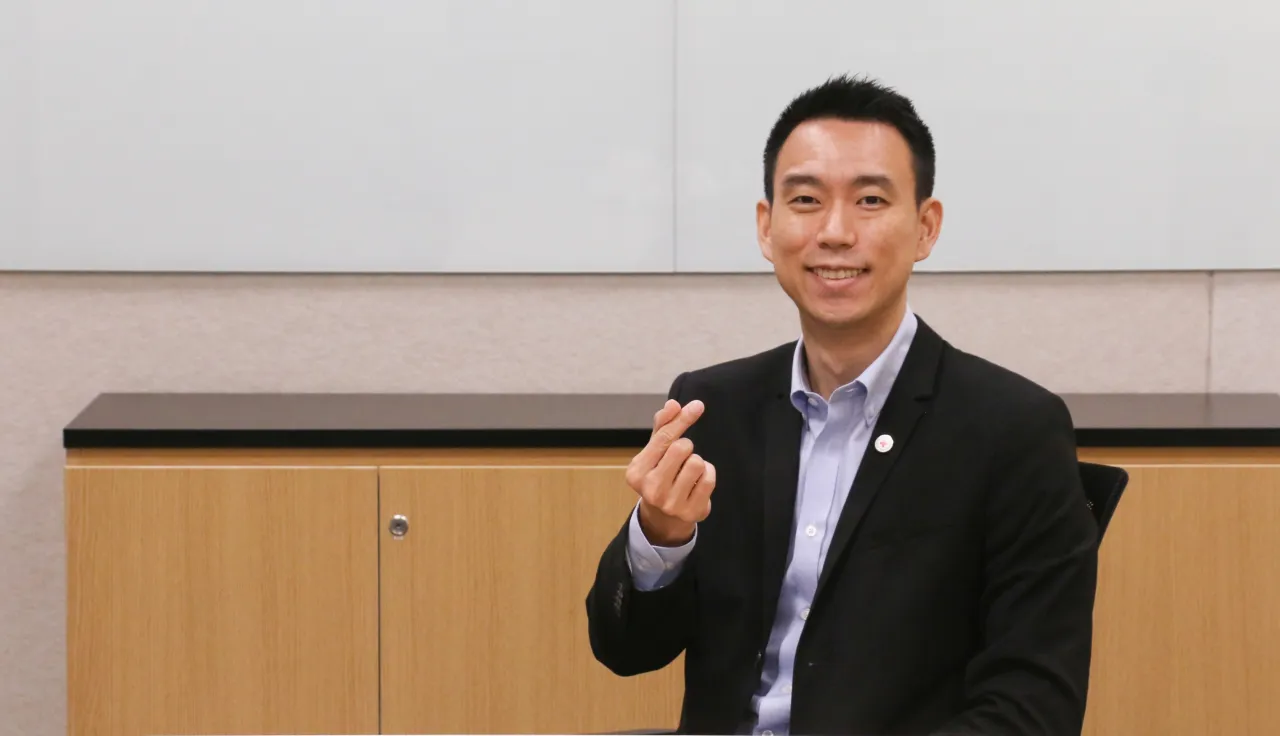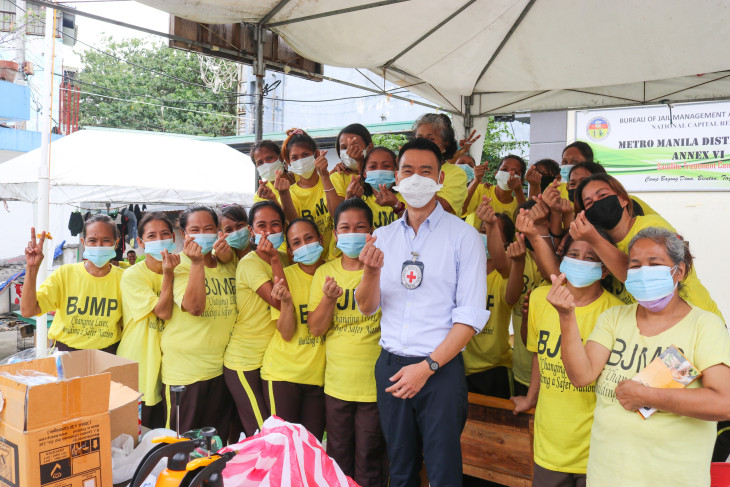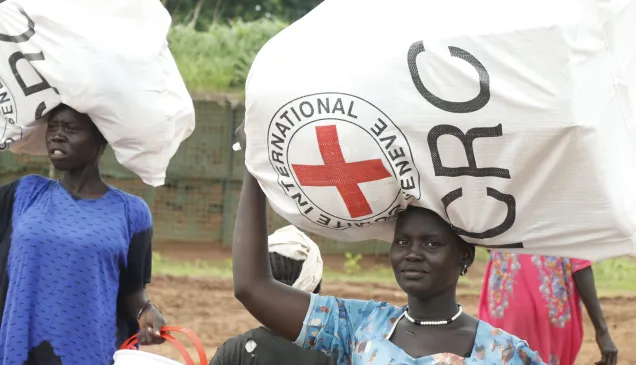Heart of a humanitarian: How Hyeon-Geun Lee is helping detainees in the Philippines

It's just another workday for Hyeon-Geun Lee. He visits a detention facility on the outskirts of Metro Manila in the Philippines and along with several other colleagues from the International Committee of the Red Cross (ICRC) attends to detainees suffering from scabies, carefully applying medicine to their wounds using pump bottles. The team has been working with the authorities to find ways to treat infected detainees and mitigate the spread of the highly contagious disease that has swept across several places of detention in the country.
The 32-year-old shares that he arrived in the Philippines in 2021, right in the middle of the COVID-19 pandemic, to work as a detention delegate. Advocating for and ensuring that people deprived of liberty are treated humanely, have acceptable living conditions, can stay in touch with family members and are being treated in accordance with correct judicial processes are some of the tasks that Hyeon-Geun has been working on in his current role. He also regularly visits the Visayas region to understand the impact of conflict on communities and to determine how the ICRC can assist them if necessary. His posting in Manila is just the latest in a humanitarian career that has seen him work in conflict zones such as Sudan, Tanzania and Nigeria.
Growing up in New Zealand, Hyeon-Geun says he didn't experience anything particularly remarkable that would make him choose a humanitarian career. But as an Economics and Political Science graduate, it just seemed like the most viable path to take. The Korea-born humanitarian is an example of how dedicated effort can take a person places.

Hyeon-Geun Lee and detainees of the Metro Manila District Jail 6 in Bicutan, Taguig, pose with "finger hearts". Lorenzo ARADA/ICRC
"I can't say that a specific person or event guided me to this career but I haven't thought of doing anything else in life. Since my university days, I have wanted to pursue a career with a humanitarian organization. I followed my interests and they have led me here," says Hyeon-Geun.
Although the pandemic posed some challenges as Hyeon-Geun took on his role in Manila, he shares that it did not take him much time to adjust to his new home. "I am fortunate to have lived in different places like Nigeria, South Korea and New Zealand. So I didn't find it particularly hard to adjust to life in Manila. My colleagues here have also been very supportive, making it easier for me to settle in. I don't even have to ask them for help; they help me of their own accord. I can't ask for a better team," he says.
'Detainees are human beings'
Hyeon-Geun is grateful for the opportunity to ensure, through the cooperation of the detaining authorities, that people deprived of liberty are treated humanely and provided with good living conditions. Based on decades of neutral, impartial and independent humanitarian work in places of detention, the ICRC is one of the very few organizations whose expertise is recognized and accepted by the Philippine authorities.
Many detention facilities in the Philippines have more than 300 per cent congestion rates, which means contagious diseases like scabies, tuberculosis and COVID-19 can spread rapidly if preventive efforts and quick responses are not in place. While there are limits to the ICRC's work with the authorities in improving the health and living conditions of detainees, Hyeon-Geun believes that the team in the Philippines is still able to positively impact the lives of those under detention.
"I talk to the authorities [about the living conditions of detainees]. After visits, we share our findings bilaterally and confidentially with them and make recommendations on how they can improve the conditions," he says.
Hyeon-Geun adds, "Although the detaining authorities may want to provide more humane living conditions inside the jail, they might also face challenges in doing so. That's why the ICRC works along with the detaining authorities and other parties concerned, including the judiciary, to enhance the efforts to decongest prisons."
A passionate advocate for the basic human rights of people deprived of liberty, Hyeon-Geun stresses that they should be treated with respect, whether they are in the Philippines or in other countries. "Their treatment and conditions should meet applicable domestic laws and international standards. They are human beings, as we all are," he says.
"There are many professional paths within the ICRC. You could be an accountant, a lawyer or a human resource expert working to support communities affected by conflicts. Working in a humanitarian organization is a privilege and an opportunity to expand your horizon."
Learning to be curious
He admits that working as a detention delegate is a demanding job that requires people to move out of their comfort zone. "About 90 per cent of the job is talking to people and working closely with strangers," he says.
Being curious also helps he shares, adding that it does not come naturally to him. "But when I started my job here as a detention delegate, I learned that I have to be curious always about every piece of information that I receive. I can't be shy in asking questions because that's how you get to learn more," he says.
Many avenues within the ICRC
Hyeon-Geun shares that there are many jobs in the ICRC that new graduates or even experienced professionals can apply for. He says that people from different backgrounds can find their place at the ICRC if they have a passion for humanitarian work. "There are many professional paths within the ICRC. You could be an accountant, a lawyer or a human resource expert working to support communities affected by conflicts. Working in a humanitarian organization is a privilege and an opportunity to expand your horizon," he adds.
Hyeon-Geun says that his work at the ICRC is proof that his decision as a young college graduate was the right one. "I have no regrets over the path I chose."



